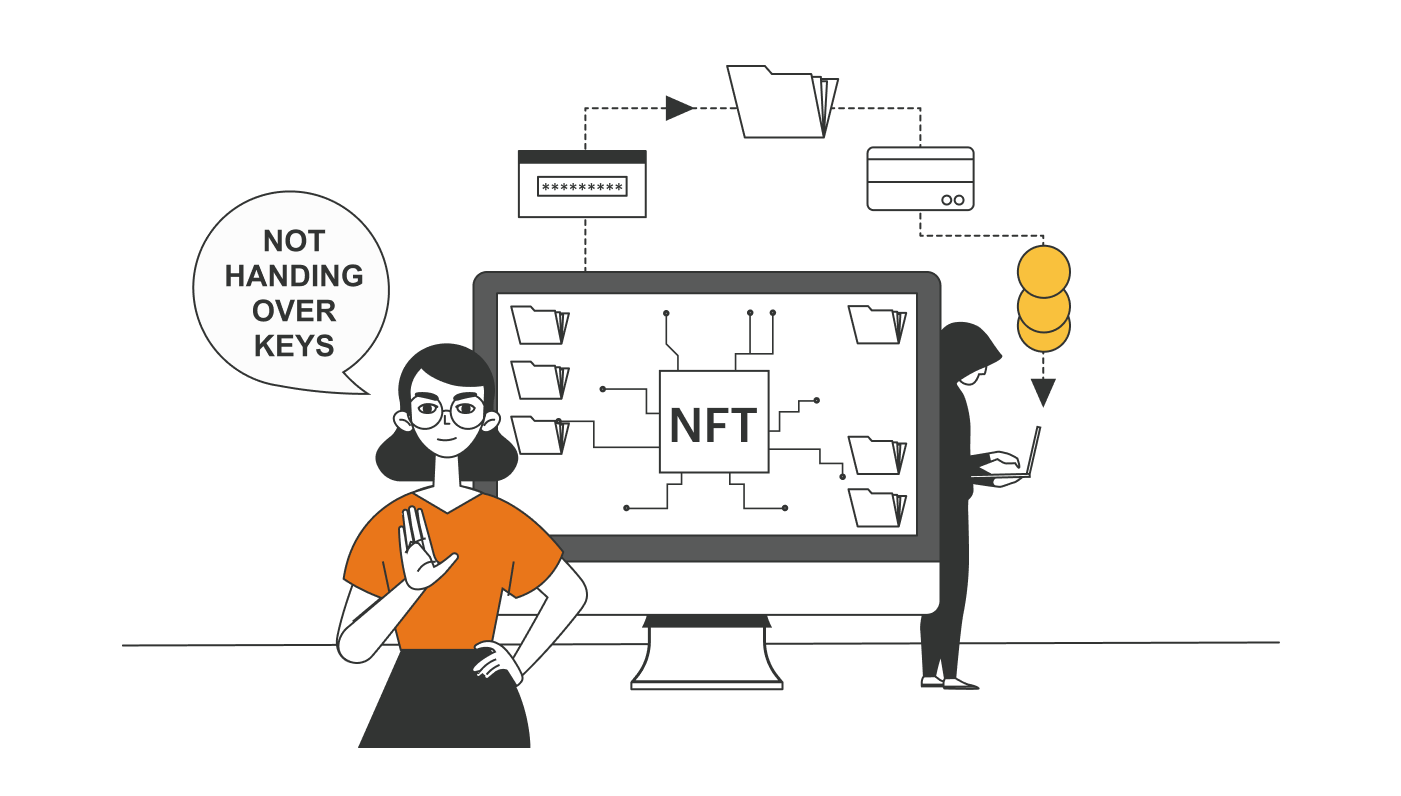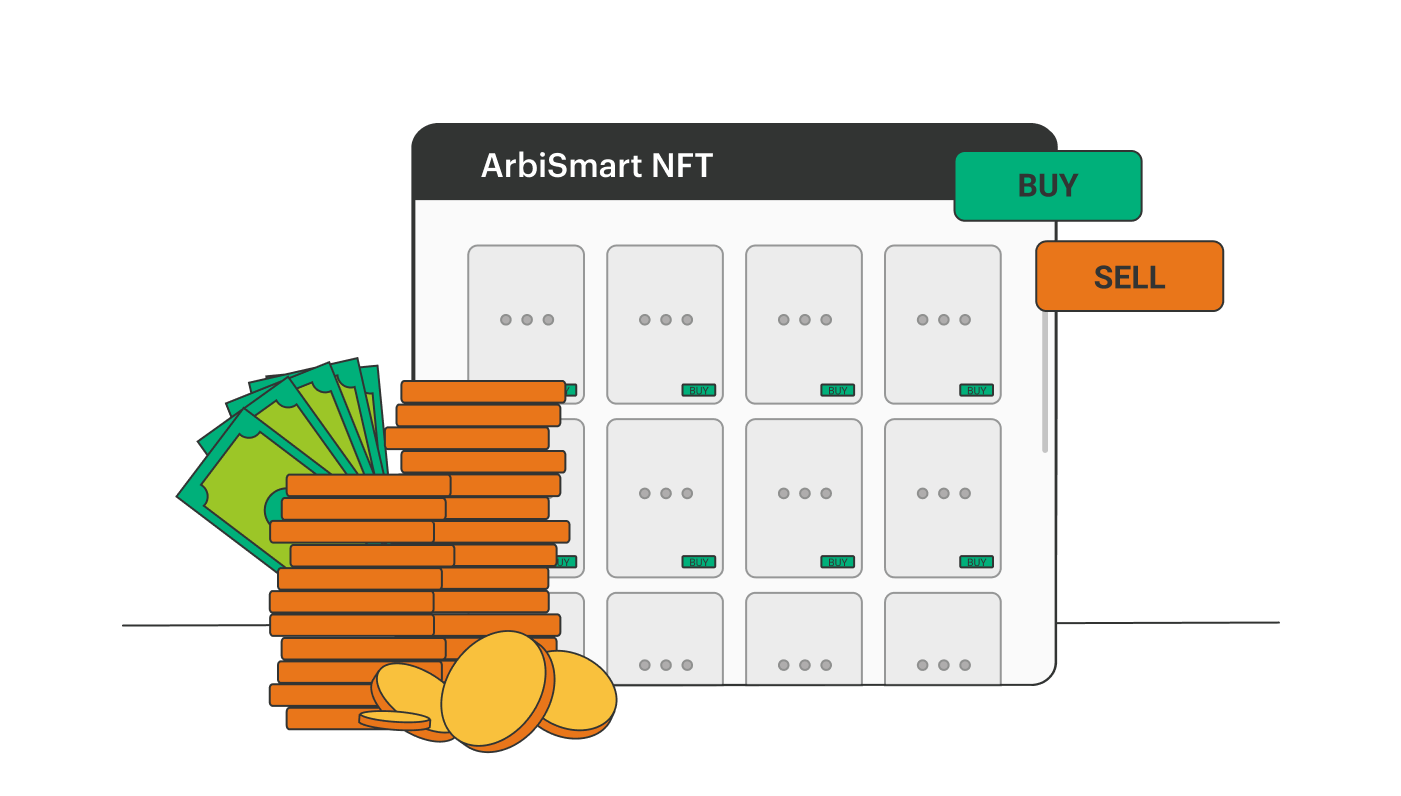The Ultimate Guide to NFT Trading Cards
The world of non-fungible tokens (NFT’s) offers a great deal of variety from video and audio files to GIFs and digital avatars. One NFT category which is becoming increasingly popular is playable and collectible trading cards.
What Are NFT Trading Cards?
To kick off, let’s start with a definition. Non-fungible tokens confer ownership of one-of-a kind digital assets like drawings, pieces of music, in-game items, and collectibles.
More specifically, an NFT trading card is a unique, tradable virtual card that a collector will either keep for display, or sell, with the aim of profiting from its appreciation. The NFT’s authenticity can be verified on the blockchain and every time it is bought or sold on an online marketplace the transaction is recorded on the public ledger, generating royalties for the creator who minted it.

NFT-based trading card games (TCG’s) are commonly used in role-playing games, and battle-based games such as Gods Unchained and Axie Infinity that enable players to use trading cards to build winning decks or gain special skills to help them battle other players. Beyond the gaming arena, NFT trading cards are also gaining prominence in the world of sports, with digital marketplaces like NBA Top Shot enabling the purchase and sale of NFT’s representing the National Basketball Association’s leading players.
Are NFTs Profitable?
Just as with real-life, physical trading cards, NFT cards can be sold for a profit as they appreciate, with the rarest or highest-profile trading cards generating the highest returns. Limited cards can be purchased through scheduled drops and then sold on secondary markets.
While it possible to create a new line of trading cards that is not minted by a top gaming company with its own branded metaverse, or licensed through a major sporting organization, your best avenue for earning a profit is through trading.
The most valuable cards are those that are rarest with the greatest level of consumer demand. The NFT trading cards that are hardest to get hold of will obviously have the highest price tag, but another major factor to consider is utility. Those that can offer most valuable in-game tools and skills or represent the best characters will be more in demand.
Another factor to consider when evaluating an NFT trading card’s worth is whether it is certified, which is relevant when dealing with sports-related tokens. For example, a FIFA or Liverpool FC card will fetch a higher price than one without official league or club licensing.

Obviously current trends will also impact the value of a card, and an NFT for a hot game will be worth more.
How and Where Can You Buy NFT Trading Cards?
NFT trading cards can be bought and sold in online marketplaces. Some have specializations like Sorare, which focuses on fantasy football player cards, while others like OpenSea are mixed marketplaces including gaming NFT’s sports, gaming trading cards and more. Your area of interest will determine the marketplace you choose.

There is an overwhelming amount of choice in this growing field, with all kinds of digital trading card collections and games to choose from, including Axie Infinity, Candy Digital, Age of Chains, Spells of Genesis, Crypto Strikers and many others.
Buying and selling NFT cards is relatively straightforward and involves registering with the marketplace or game where they are offered.
To begin with, if you don’t already have one, sign up with a digital wallet, such as our own ArbiSmart interest-generating wallet, which doesn’t just store your FIAT and crypto, but also generates passive profits of up to 147% a year.
Deposit funds and then pick an NFT marketplace like Open Sea, or a game like Upland. Then pick an NFT trading card to purchase by bidding or paying a fixed price. In most marketplaces, you can filter for the cards you want by the creator or the collection. If you want to use a trading card in a game, it will need to be sent to a wallet that supports the specific game.
When buying NFT’s, there is a transaction payment known as a gas fee, used to cover the price of powering the crypto exchange. The fee amount can vary, as it depends on the blockchain that day.
Are NFTs Legit?
The short answer is absolutely. NFT’s, while virtual, are just as valid and valuable as physical assets. However, the world of NFT’s is a relatively new phenomenon that still under-regulated, so you would be wise to never invest more than you could afford to lose.
Wallets use complex encryption to secure your digital capital, but keeping the password keys safe is the up to you. Also, the legitimacy of any purchase is not the responsibility of the wallet platform or the marketplace where the NFT’s were bought and you cannot turn to them for compensation if scammed.
Anyone buying NFT trading cards needs to be vigilant and keep an eye out for common scams, such as phishing, where you are redirected to a fake marketplace through a button in an email or forum. But, you can protect yourself by never handing over your keys as part of the purchase process.

You also need to be on the lookout for fake NFT trading cards. The best way to shield against buying illegitimate cards is to pick a reputable marketplace and look for seller verification symbols, like a blue check that indicate their trustworthiness.
Finally, as with all crypto investments, be wary of rug pulls, where huge future gains are promised but the NFT promotors run off with investors’ money. Follow the golden rule. If it sounds too good to be true, it probably is.
By taking these precautions you can safely enjoy an exciting and potentially highly lucrative new digital asset class.
The ArbiSmart NFT Marketplace
Here at ArbiSmart, we will be introducing our own collection of thousands of one-of-a-kind digital characters as well as launching our own NFT marketplace for the purchase and sale of non-fungible tokens later this year.

This is part of a major development push that started earlier this quarter, with the introduction of the ArbiSmart interest generating wallet. In addition to the NFT marketplace and unique ArbiSmart collection, in the latter half of Q3 and in Q4 we will be releasing a mobile application, a decentralized yield farming program, with never-before-seen gamification features, a cryptocurrency exchange and a play-to-earn gaming metaverse, where players will be able to make real-world profit buying, developing and selling virtual real-estate.
All these new utilities being added to the ArbiSmart ecosystem will offer exciting revenue opportunities. They will all require use of RBIS, our native token, boosting demand, driving up the price and generating exceptional capital gains, while also offering their own revenue streams. Since they will be interconnected, when you buy an NFT you will be able to profit from any appreciation, use it in the metaverse, or use it to increase you APY from yield farming.
To find out more about our NFT marketplace and interest-generating wallet, go to the ArbiSmart site, or learn about NFT’s in general as well as a range of other crypto trends, by browsing our blog.